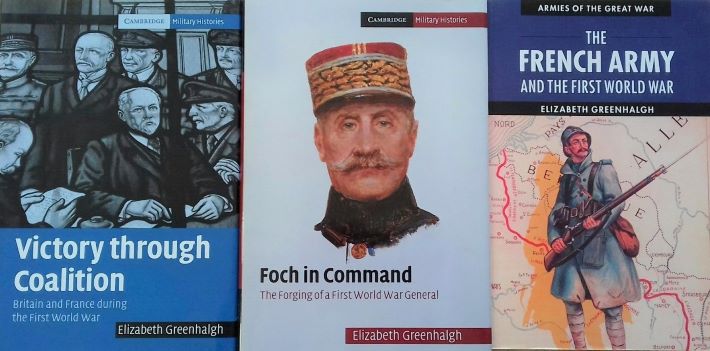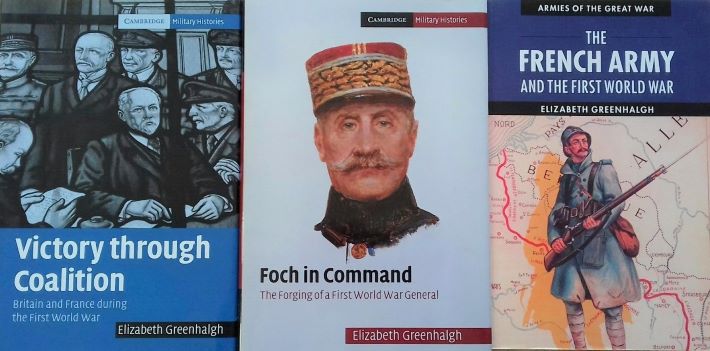Jim Beach of UoN History reflects on the passing of a remarkable historian.
This is not an obituary. Nor is it a eulogy. It’s probably ‘an appreciation’. But Elizabeth, who died this month, would perhaps have pulled a face at that description. So let’s call it a paean; a song of praise that the Ancient Greeks offered up for their dead heroes.
Having come to the subject late in life, Elizabeth quickly established herself as a world-class military historian of the First World War. Within a decade she had published three landmark works with Cambridge University Press; Victory through Coalition (2005), Foch in Command (2011), and The French Army in the First World War (2014). In addition to this impressive output, Elizabeth also engaged in lively debate, through a series of articles, about Anglo-French relations during the conflict.

My first encounter with Elizabeth was a dozen years ago at a conference on the Battle of the Somme. We ended up sitting next to one another during dinner and, having asked me some polite but tough questions about my recently-completed thesis, she immediately suggested avenues I could pursue as well as offering me snippets from her own work.
After that I saw her mainly during research trips to Europe from her home in Australia. Elizabeth’s historical generosity continued, and I will be forever grateful for various titbits taken from dark archival corners on both sides of the Channel. And as her books came off the presses, like the rest of the historical community, I was consistently impressed by the depth of her research and their lively writing. Her work is also now embedded into my undergraduate teaching.
Visiting Canberra a few years back, Elizabeth and her husband Michael provided me with a lovely home-cooked dinner, some great wine, and a lift back to my hotel. But perhaps most delightful of all was the fact that she had, without me asking, raided her institution’s library shelves for every ageing text related to my research. Best short-term loan system I’ve ever encountered!
Elizabeth’s tenacity and thoroughness in pursuing historical targets was both remarkable and inspirational. Like a great detective in crime fiction, for her there seemed to be no such thing as a cold case. As secretary of the Army Records Society, I was lucky enough to have a ringside seat for one of these pursuits.
Having proposed a book of documents and diary entries written by the French liaison officer to British GHQ, over many years various obstacles blocked Elizabeth’s path. A lesser historian might have retired with honour from what seemed an impossible task. Instead she doggedly chased down strange French copyright regulations, obscure bibliographic references, and elusive retired academics. The resulting volume, Liaison: General Pierre des Vallières at British General Headquarters, January 1916 to May 1917, is one of the society’s best.
For any military historian starting out, I think Elizabeth’s scholarly life tells you this: Don’t let age or gender hold you back from joining the fray, follow your passion and seek out fresh evidence, then challenge any consensus you might collide into. Back yourself. However, always take the time to find out properly what others are researching so you can lend a helping hand when paths intersect.
I will miss her. Military history will too. But from what I knew of her, Elizabeth would not want a fuss. Instead she’d probably want us to just get on with some decent archival research and then get it written up.
